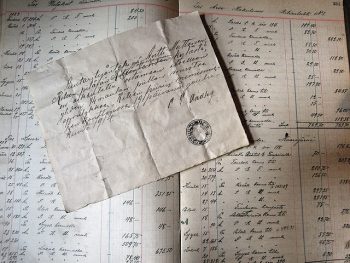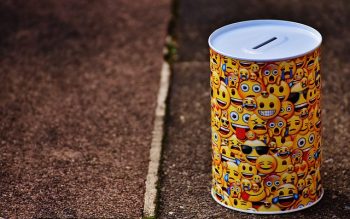The codevi (account for industrial development) renamed LDD (Livret de Développement Durable) in 2007, then LDDS (Livret de Développement Durable et Solidaire) in December 2016 is a savings account that is not subject to social security contributions or to income tax. Since August 2015, this booklet is remunerated at 0.75%.
CODEVI was set up in 1983 at the request of banks who wanted the abolition of the distribution monopoly of the Livret A passbook. Its institution was aimed at financing small and medium-sized enterprises (SMEs). Its ceiling was at the time fixed by decree at 20,000 French francs. It was raised to 15,000 francs in 1991, then 30,000 francs in 1994. In 2002, with the advent of the changeover to the euro, the ceiling was set at €4,600. On January 1 , 2007, the CODEVI was transformed into an LDD and its ceiling reached the bar of 6,000 euros. Its vocation has also changed, since the funds collected were now dedicated to financing energy efficiency work in old buildings. The LDD ceiling doubled on October 1 , 2012, to now stand at 12,000 euros. On December 1 , 2016, the LDD was transformed into the LDDS thanks to the Sapin-2 law. Banks can now use the funds to finance projects relating to the social and solidarity economy.
The LDDS is reserved for adult natural persons having their tax domicile in France. It is possible to open an LDD for a minor, but they can only withdraw the amounts saved when they reach majority. Each taxpayer is entitled to only one account. People who are married or in a civil partnership are also only entitled to one account per couple. When opening a second LDDS, the previous one is automatically closed. Customers must declare their old LDD before opening another in any bank.
CODEVI provides banks with funds to finance energy efficiency works. Part of the funds collected is directed to the financing of SMEs. Another is used to finance approved solidarity enterprises of social utility. The fund is also used to build sustainable infrastructure, housing for people with disabilities and social housing. As a result, the banking establishments which distribute this product are required to offer their customers that part of the balance of their account be allocated to the financing of a solidarity project. The amounts withdrawn then constitute donations.
Legally, deposits and withdrawals are not subject to any cap. In practice, banks impose a minimum of 10 or 15 €. Withdrawals and deposits can be made at any time. Money can be withdrawn by bank transfer or in cash. Withdrawals by check are not possible, because the banks do not grant checkbooks for this category of account. On the other hand, some establishments give a withdrawal card to their customers. However, the latter can only be used on the network of the bank in which their LDD is domiciled. The opening time is not subject to any limitation.
To open an LDD, simply go to a bank that distributes this product. Most banks based in France have this product in their portfolios. The client will need to fill out forms and then make a deposit. The law does not require any minimum, but most banks require that a minimum deposit of 15 euros be made when opening the account.
Closing an LDD is very easy. The customer must make a request to his bank, either by post or by going to the branch where he opened his account. He must also provide the number of the account he wishes to close, as well as that of the account where he wishes to transfer the amounts present on his LDD.
Like the A booklet, the Sustainable and Solidarity Development Booklet is capped. Since 2012, the LDD ceiling is 12,000 euros, half that of the Livret A. This ceiling only concerns the amounts that can be deposited there and not the interest that results from it.
The LDD interest rate changes twice a year, on February 1 and August 1. It is calculated using an automatic formula that takes into account the rate of inflation. Two formulas exist. The first is to raise the inflation rate by a quarter of a point. The second consists of taking an average of the Eonia and the 3-month Euribor. Each time, only the formula that offers the greatest benefit to the customer is selected. In August 2017, a small change will occur. The indices will be kept, but they will be smoothed over 6 months to prevent the rate from varying too suddenly. Similarly, the increase of a quarter point is now conditional. It is canceled if the inflation rate is higher than the market rate. The current rate is 0.75%. Interest is calculated fortnightly. If the saver deposits money before the 15th of the current month, this sum is taken into account for the calculation of interest. These are paid on the 16th of the following month. All accrued interest is deposited on December 31 of the current year.
The LDD is exempt from taxes. The interest it earns is not subject to social security contributions such as the Generalized Social Contribution (CSG) and the Contribution to the Reimbursement of Social Debt (CRDS). The first has a rate of 8.2%, while the rate of the second stands at 0.5%.
The LDD is a very safe investment, which remains available whatever the period. Penalty-free, this savings account allows you to take full advantage of its interest, since you pay no taxes or taxes. You also participate in the economic development of SMEs, as well as in reducing unemployment. You protect the environment and you allow France to win the challenge of sustainable development.
In October 2012, CODEVI experienced record collection, which amounted to 13.94 billion euros. It is explained in particular by the raising of the ceiling of the booklet. In January 2013, the euphoria subsided and fundraising returned to around 2 billion. The rate which was 1% in August 2014 rose to 0.75% in August 2015. The booklet is therefore declining in popularity. Inflows therefore remained negative between January and November 2016. Savers withdrew more money than they deposited. They now prefer the booklet A considered more attractive.
To sum up, the sustainable and solidarity development booklet (LDDS) is a savings account open to all individuals domiciled in France for tax purposes. It was set up to finance SMEs, sustainable development and energy savings. It is rather interesting, because it is completely exempt from taxes. Unfortunately the drop in its rate makes it less and less interesting and the French now prefer the Livret A, which they consider more profitable.




